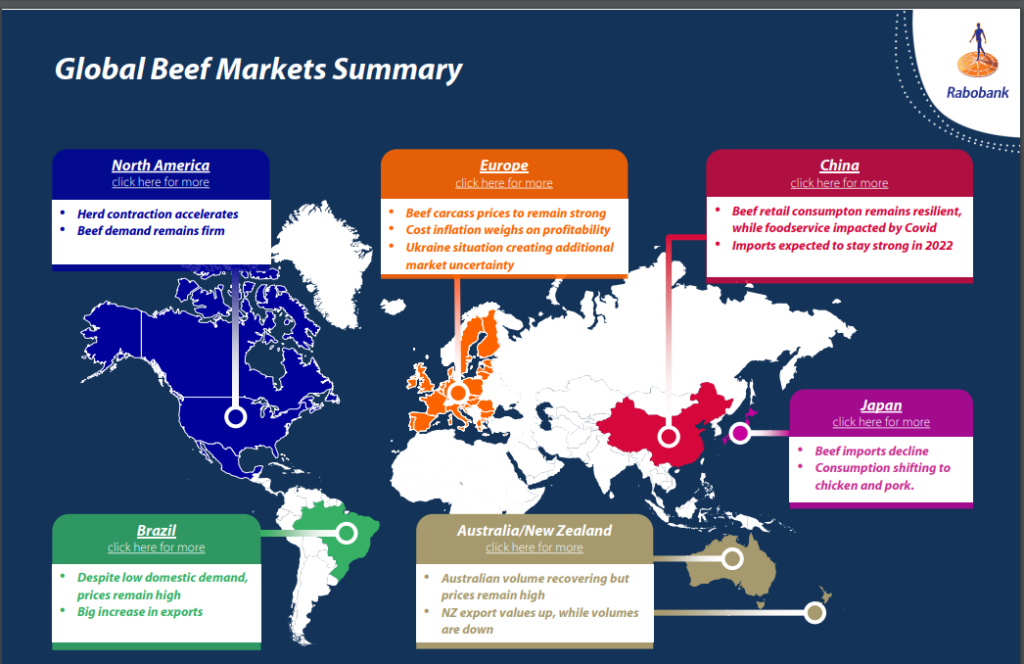The willingness of consumers to pay higher beef prices due to inflationary pressures will be tested in the coming year, according to Rabobank.
In its global beef outlook for the first quarter of 2022, the bank said that global markets remain tight.
"Ongoing strong demand and more limited supplies have kept global beef prices high, but cost pressures are flowing into the supply chain," the report outlined.
It notes that feed, labour, freight and energy are among the largest cost increases.
Rabobank stated that retail beef price movements in the past two years have been "phenomenal", mainly due to strong consumer demand.

"In Q4 2021, beef retail prices in the US were 23% higher than the five-year average and in China they were 24% above the five-year average," the study found.
“In many cases, this increase in prices was caused by demand pull. With supply unable to keep up, the increase in demand has created an imbalance in the market and as a result beef prices have lifted,” Angus Gidley-Baird, senior animal protein analyst at Rabobank, explained.
For many regions, retail beef prices have seen some of the largest increases in history.
Prices continued to rise during 2021 while many of the other proteins remained stable or contracted.
The report questions if consumers will be willing to pay higher prices for beef as inflationary pressures grow.
"While the demand-led increase in beef prices may have alleviated some of the pressures of the cyclical cost increases, finding a way to maintain beef demand and cover further cost increases may prove a more challenging task."
The bank warned that more retail price increases "run the risk of consumers substituting to other proteins or reducing their overall consumption".
Although there may be signs of weakening demand in some markets, the report noted that others remain strong. "Maybe we have not reached the limit yet," it stated.
Meanwhile, Rabobank is predicting "no major impacts on global beef markets" as a result of the conflict between Russia and Ukraine.
This is due to Russia's prominence in the market being less than five years ago.
However, the bank has warned that there could be "indirect impacts" on feed prices due to economic sanctions. Russia and Ukraine account for almost 30% of global wheat exports.

